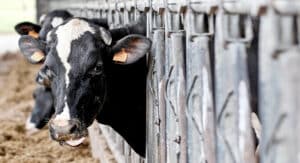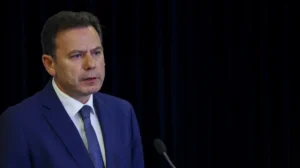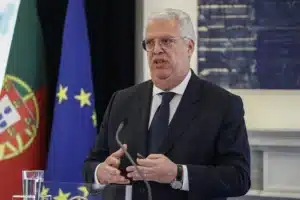Government showing “concern to be attentive to needs of companies”
As the first meetings in the wake of tariff turmoil take place today between Portugal’s caretaker government and business leaders and associations, president of Portugal’s CIP business confederation has emerged giving a tentative thumbs-up.
The meeting covered support for export credit insurance and market diversification in response to US tariffs, he said, stressing it was an “interesting meeting, because the caretaker government showed concern to be attentive to the needs of companies”.
Armindo Monteiro told Lusa that as well as economy minister Pedro Reis, finance minister Joaquim Miranda Sarmento also took part “because the tax side is very important”.
“There was a concern to have a strong task force to be able to chalk out a strong and comprehensive plan, and in that sense it was good, because we have to respond to this in a very concerted way, because the challenge is great,” he said.
In terms of concrete measures, he pointed out that “there was a joint reaction from Europe from the outset”, requiring “diplomacy and negotiation, which is typical of any war, be it conventional or commercial”.
We “need to strengthen export credit insurance plans”, bearing in mind that the internationalisation of the Portuguese economy is already necessary, he said.
“We need to increase the value of exports and diversify destination markets,” he added, pointing out that support for market diversification, credit lines, and insurance for export activity should be considered.
Concerning IVA (VAT), Armindo Monteiro said that CIP is not in favour of PS Socialists’ electoral plan to reinstate ‘zero IVA’ on essential foods, because “it shouldn’t be the state that chooses the diet of the Portuguese.
“We’re more in favour of measures that don’t harm industry,” he said, stressing that to “increase and stimulate domestic demand, one way would be to reduce IVA from the maximum rate to the reduced rate and apply it to all products.”
The Ministry of Economy is meeting with 18 business associations from various sectors until tomorrow to assess “the impact and mitigation measures” of the tariffs that US President Donald Trump announced last week, along with the 25% levies to be put on all foreign car imports, and imports of steel and aluminium.
It is widely understood that all EU countries will be conducting meetings like this as they await the result of the European Commission’s attempts to negotiate.
President Trump’s tariffs are designed to boost US industry while punishing countries for what he claims have been years of unfair trade practices. Different countries have different surcharges, based on Mr Trump’s perception of how hostile they have been to trade. The table used has made very little sense to the wider world, with poor countries like Vietnam, Cambodia and Lesotho saddled with tariffs of over 40%. ND
Source material: Lusa


























